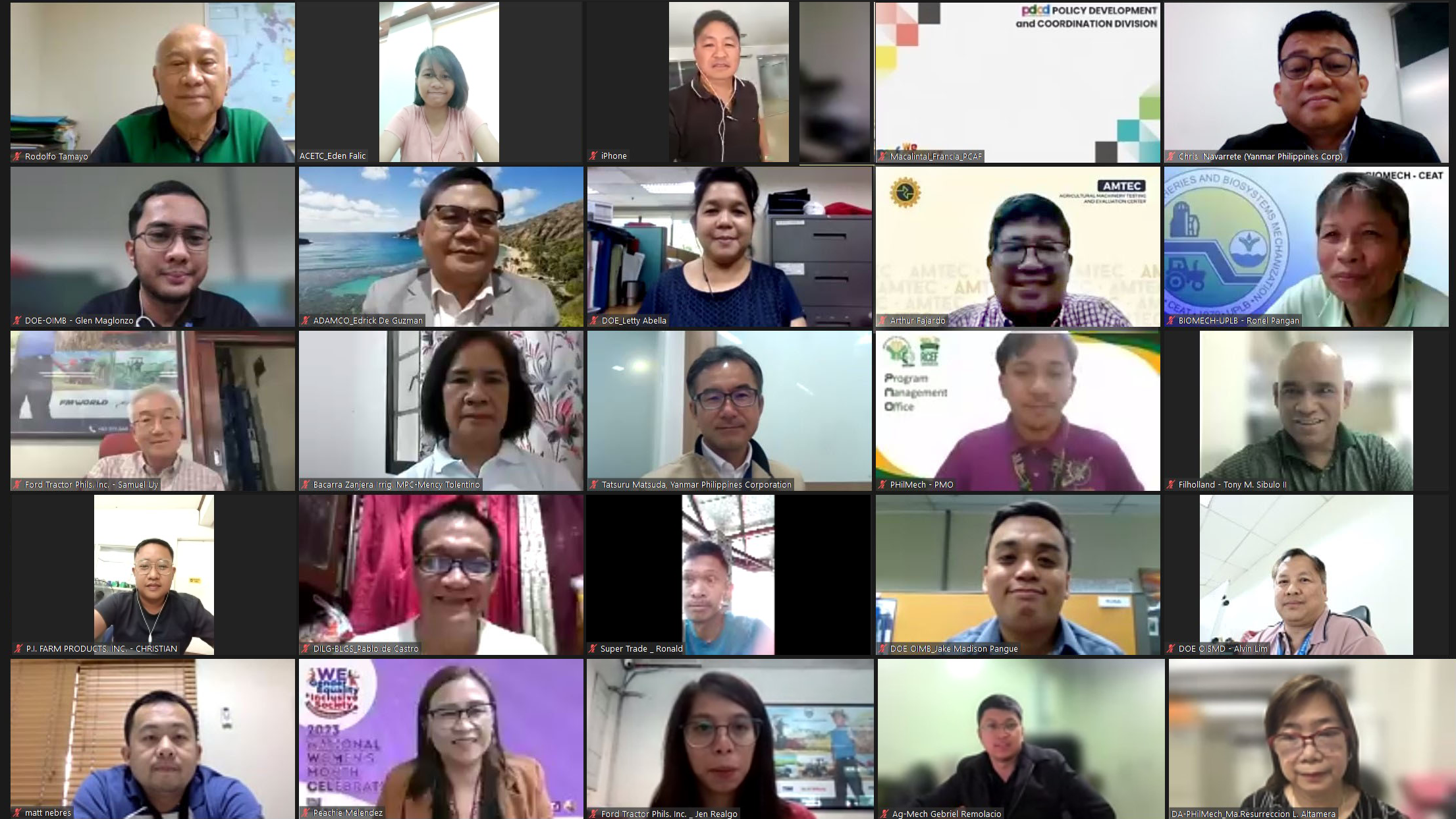
The private sector partners of the Committee on Agricultural and Fisheries Mechanization (CAFMech) urged the Philippine Center for Postharvest Development and Mechanization (PHilMech) to review and subject to consultation its proposal to convert tractors and combine harvesters to Tier III/IV during a special meeting on April 20, 2023.
PhilMech’s proposal is in line with the Department of Budget and Management (DBM) Budget Circular No. 2022-1 issued on February 11, 2022. The Circular is issued to harmonize and update DBM issuances and provide an omnibus guideline on the acquisition, use, rental, and replacement of government motor vehicles as a single reference document.
Section 2 of the said policy issuance provides that “motor vehicles to be acquired and/or rented by the government shall be cost-effective, fuel-efficient, environment-friendly, and at par with the improvements and developments in the automotive industry and relevant technology.”
However, the private sector members of CAFMech argued that farmers and machine suppliers are not yet ready to shift from Tier II to Tier III/IV diesel engine-powered agricultural machinery like tractors and combine harvesters.
“The private sector members of the CAFMech are willing to cooperate with PHilMech’s order,” said CAFMech Chairperson Rodolfo Tamayo. “However, please consider the suggestions of the Body and give us time for a proper transition.”
Two recommendations were passed in the meeting concerning the proposal. One is for PhilMech to conduct a stakeholder consultation on their proposal on Tier III/IV diesel engines of tractors and combine harvesters before the conduct of public bidding.
The body also recommended for the Agricultural Machinery Testing and Evaluation Center (AMTEC), in partnership with the Department of Transportation-Land Transportation Office, to include actual random smoke tests in the conduct of emission testing to tractors and combine harvesters.
“All emissions must be within air quality standards. (The policy) refers to vehicles like cars, trucks, buses, jeepneys, tricycles, motorcycles and vans. These are ‘on-road’ vehicles, while agricultural tractors and rice/corn combine harvesters are ‘off-road’ vehicles, which are not covered by RA 8749 or the Philippine Clean Air Act. Thus, Tier III and IV diesel engines need not be mandatory,” Chairperson Tamayo added.
He also said that major Philippine tractor and combine harvester distributors are hesitant to install Tier III or Tier IV diesel engines in their tractors and combine harvesters due to their high sulfur content.
The Committee also pointed out that Tier III and IV are priced higher and require higher grade lubricants and special maintenance servicing.
They also urged PhilMech to conduct a policy study and include the agri-machinery suppliers as respondents to validate its viability.
“Consultation is very important and all of us here are not agreeing with this. We need to have at least three or six months or pinakamatagal na ang one year (to adjust and arrange the necessary documents for the shift),” said one of the members of CAFMech.
According to a study published in Biosystems Engineering Journal, there is insufficient information about the real-life operating modes, fuel consumption, and oxide emissions from particular tractors during longer or shorter phases of operation.
It added that in the absence of such data, it is difficult to assess the impact of innovations, and comparing the economic and environmental indicators of tractors during field operation is complex. It is also a challenge to assess how farmers operate their tractors on different farms, explore where possibilities exist to reduce fuel consumption and determine the adverse environmental impacts during operation, particularly in the field. |JC











